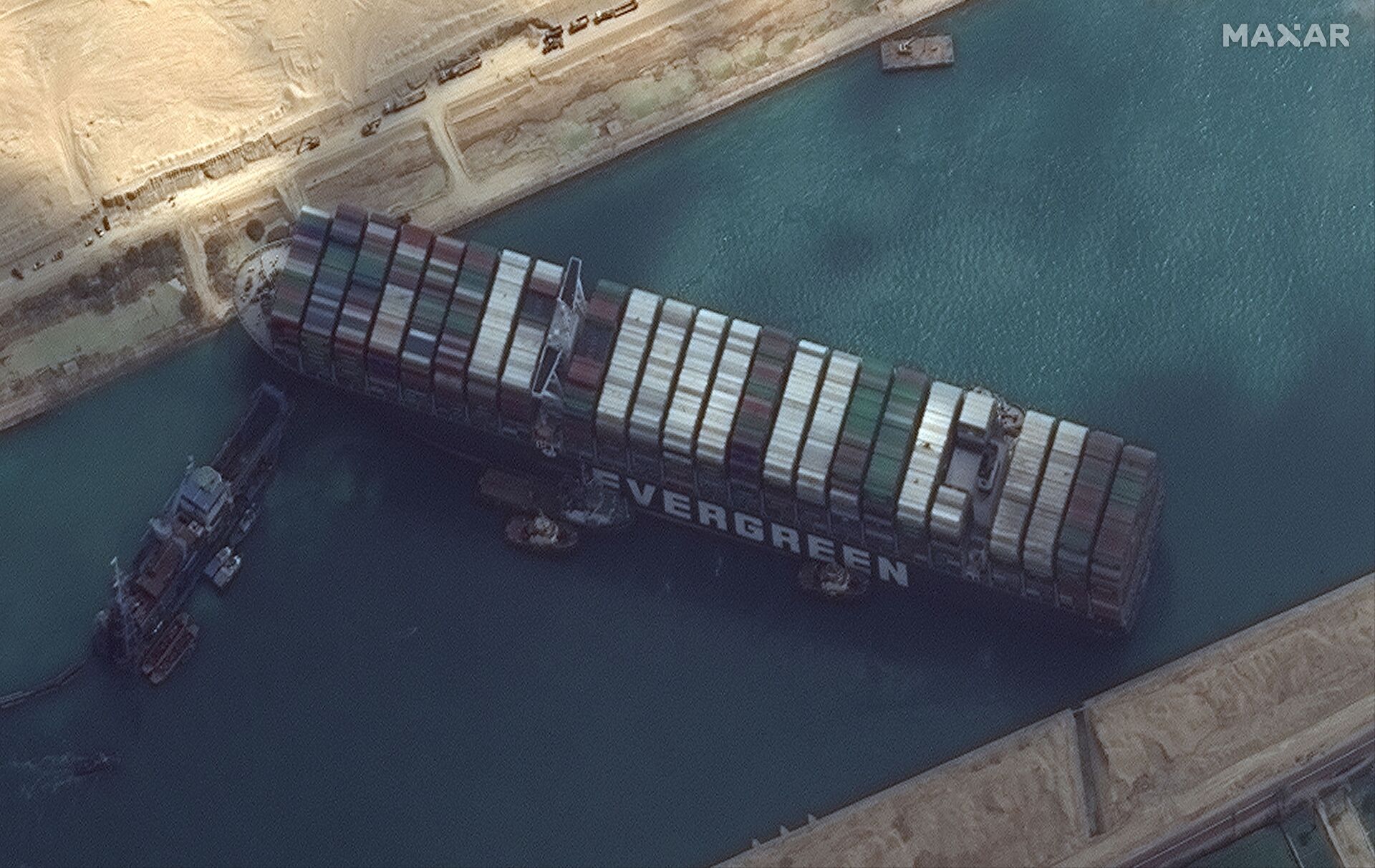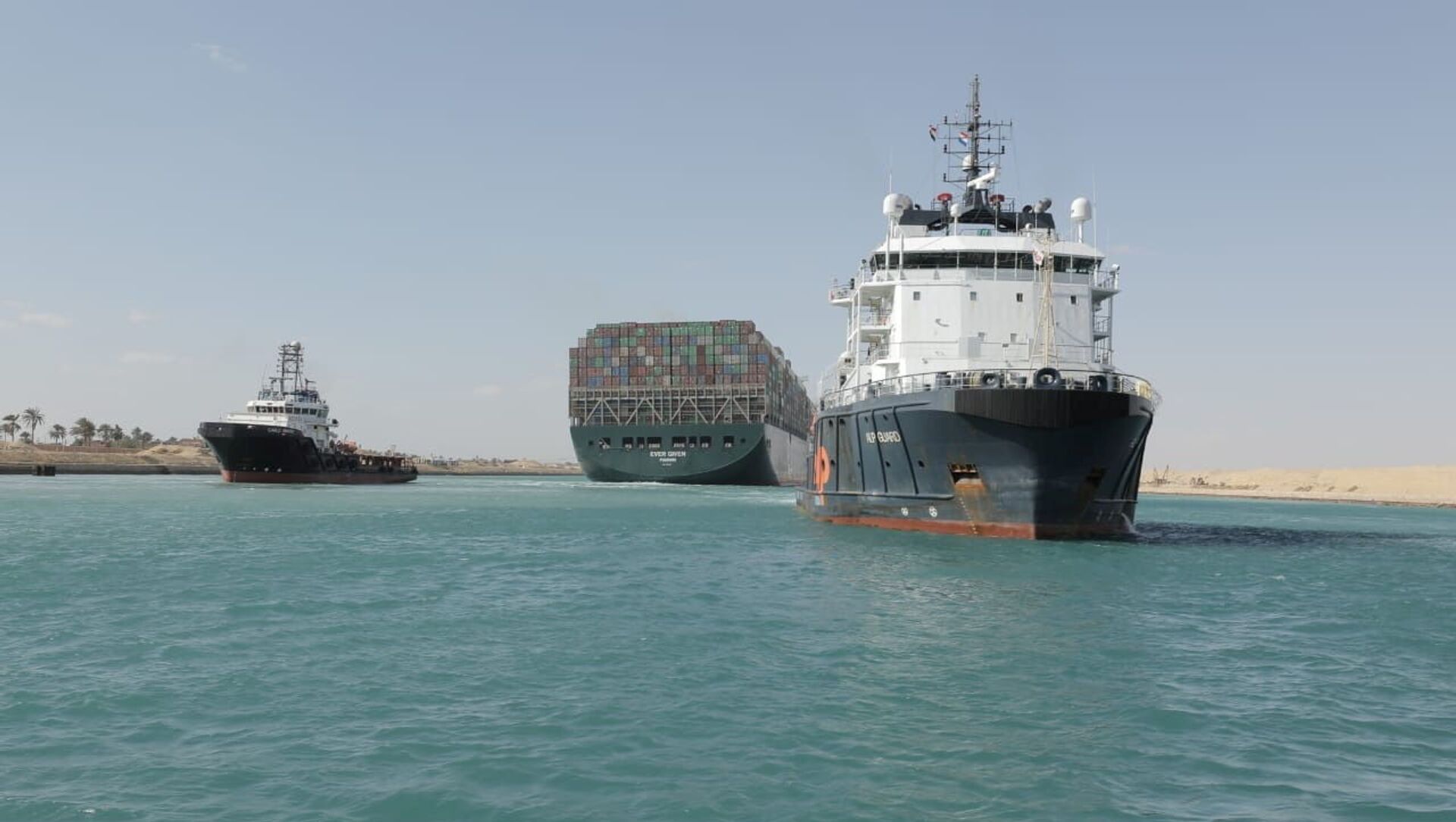"We will continue the calculation, count all the funds that we have used since the incident's first day, costs of the use of tugs and dredging vessels, which worked around the clock," Suez Canal Administration chief Osama Rabia told Egyptian news channel Sada el-Balad TV on Wednesday "This is a significant sum ... $1 billion or something like that."
In addition, Rabia previously stated the collapse of canal traffic has cost the Egyptian government $14 million per day in tolls.
For now, the Japanese-owned, Taiwanese-operated, Panamanian-flagged vessel has been towed to the Great Bitter Lake, which is about halfway through the canal that connects the Mediterranean and Red seas. There Ever Given will stay until a complete investigation of the incident is complete, including safety inspections of its hull, the front of which became lodged in the eastern bank of the canal. It had been traveling from China to the Netherlands before the mishap occurred.

Rabia said Ever Given's crew has yet to relinquish the ship's black box and other documents to Cairo as part of its investigation.
Ever Given became lodged in the Suez Canal on March 23. Longer than the waterway is wide, its huge hull totally blocked passage, causing hundreds of ships to accumulate at both ends of the canal. While it was estimated the immediate traffic jam will take between three and six days to totally clear, global shipping could take six months to return to normal. With the canal blocked, many captains plotted out routes south around the Cape of Good Hope, as ships once did before the canal opened in 1869, while land freight routes across Asia saw a pronounced uptick in traffic.
The canal was built between 1859 and 1869 and financed by the French and Egyptian governments. Of the 1.5 million Egyptian laborers who dug the canal, an estimated 120,000 died. Cairo lost all control over the canal after the heavily indebted Egyptian government was forced to sell its shares in the managing company to the UK in 1875, but in 1956, when the company’s 99-year lease expired, Egyptian President Gamel abd al-Nasser moved to nationalize the canal. A joint British-French-Israeli force then temporarily invaded and occupied the canal zone, closing it for nearly a year before US and Soviet pressure forced them to withdraw.


